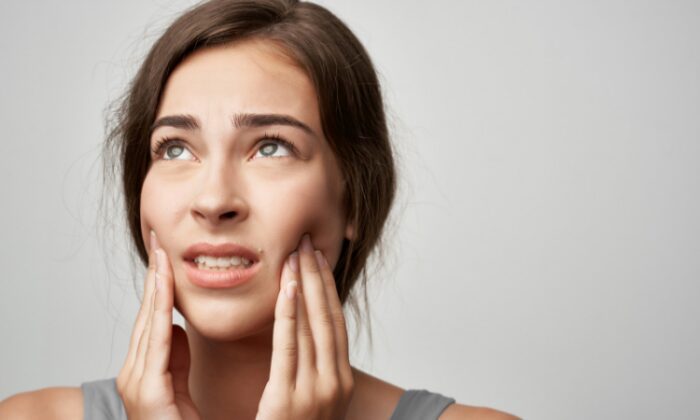Teeth grinding, also known as bruxism, is a common yet often overlooked problem. It affects a substantial number of people, often without their knowledge. Bruxism frequently occurs during sleep, making it difficult to diagnose. Stress, anxiety, and even misaligned teeth can trigger this condition. Over time, teeth grinding can lead to serious dental and health issues. Understanding its dangers is crucial for prevention and treatment.

Dental Damage
Teeth grinding can cause significant dental damage. The constant pressure and friction wear down the enamel, which is the hard outer layer of the teeth. Enamel acts as a protective shield against decay and damage. When enamel erodes, teeth become vulnerable to cavities and other dental problems. Grinding can also cause teeth to fracture or chip, leading to structural damage. These issues may require costly dental repairs, such as crowns, fillings, or even root canals. In severe cases, grinding can lead to tooth loss, necessitating implants or dentures.
Jaw Pain and Disorders
Bruxism often leads to jaw pain and discomfort. The temporomandibular joint (TMJ) is particularly susceptible to strain from grinding. This joint connects the jawbone to the skull, allowing for movement and function. Grinding places excessive pressure on the TMJ, leading to inflammation and pain. Over time, this can develop into temporomandibular joint disorder (TMD). TMD causes a range of symptoms, including pain, clicking or popping sounds, and difficulty chewing or opening the mouth. Chronic TMD can significantly impact daily life and overall well-being.
Headaches and Ear Pain
Teeth grinding can contribute to frequent headaches and migraines. The tension from grinding affects the muscles in the head and neck, leading to chronic pain. This tension often results in tension-type headaches, which can be debilitating. Ear pain is another common symptom of bruxism. The proximity of the jaw joint to the ear canal means that grinding can cause discomfort or a feeling of fullness in the ears. In some cases, it may even contribute to tinnitus, a ringing or buzzing sound in the ears.
Sleep Disruption
Bruxism not only affects dental health but also disrupts sleep. The noise of grinding can disturb a partner, leading to restless nights. For the person grinding, the condition can cause fragmented sleep and frequent awakenings. Poor sleep quality affects overall health, leading to fatigue, irritability, and decreased concentration during the day. Chronic sleep disruption can also weaken the immune system, making individuals more susceptible to illness.
Increased Tooth Sensitivity
Grinding can increase tooth sensitivity, making everyday activities uncomfortable. The erosion of enamel exposes the inner layers of the teeth, which are more sensitive to temperature changes. Hot or cold foods and drinks can cause sharp, shooting pain. This sensitivity can affect eating habits, leading to dietary restrictions and a decreased quality of life. Over time, untreated sensitivity can worsen, requiring more extensive dental interventions.
Gum Recession
Teeth grinding can contribute to gum recession, a condition where the gums pull away from the teeth. The pressure from grinding affects the gums, causing them to recede over time. Receding gums expose the roots of the teeth, increasing the risk of decay and sensitivity. Gum recession can also lead to periodontal disease, a serious gum infection that can damage the soft tissue and bone supporting the teeth. Preventing gum recession involves addressing the underlying causes of bruxism and maintaining good oral hygiene.
Prevention and Treatment
Preventing teeth grinding involves addressing its root causes. Stress management techniques could help reduce nighttime grinding. Relaxation exercises, meditation, and counseling may prove beneficial in managing stress and anxiety. Dentists can provide custom mouthguards, which protect teeth during sleep. These mouthguards also help reduce the strain on the jaw and alleviate symptoms of TMD. In some cases, orthodontic treatment may be necessary to correct misaligned teeth and improve the bite.
Dr. Alan Dechter and Dr. Matthew Moy are dedicated to helping you preserve your oral health. If you have increased tooth sensitivity, enamel erosion, or frequent jaw pain, tooth grinding could be the culprit. Contact their office today to schedule a consultation and learn more about your treatment options.
